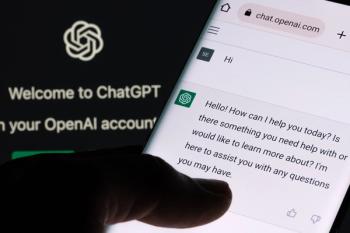
Using digital cognitive behavior therapy to treat eating disorders
Eating disorders can be devastating and could lead to damage or even death. Can digital cognitive behavior therapy help?
Sadly, for many pediatric patients, eating disorders are a fact of life and can all too often lead to permanent damage or even mortality. An
Investigators ran a cluster randomized trial from 2014 to 2018 at 27 universities in the United States. The universities were randomized to either the intervention, Student Bodies–Eating Disorders, a digital CBT-guided self-help program, or to refer participants at the university to usual care. The participants had binge-purge eating disorders, with threshold and subthreshold participants. Each participant was followed up for up to 2 years following either the intervention or standard care.
The study included a total of 690 female college students who had eating disorders. When looking at eating disorder psychopathology, the researchers found a greater reduction in participants who underwent the intervention versus the usual care group at the postintervention assessment (β [SE], −0.44 [0.10]; d = −0.40; t1387 = −4.23; P < .001). A similar comparison was found during the follow-up period (β [SE], −0.39 [0.12]; d = −0.35; t1387 = −3.30; P < .001). No significant difference in abstinence from any eating disorder behavior at the postintervention assessment was found (odds ratio, 1.48; 95% CI, 0.48-4.62; P = .50) nor was any found during the follow-up period (odds ratio, 1.51; 95% CI, 0.63-3.58; P = .36). When compared with the group that received usual care, the group who underwent the CBT intervention saw significantly greater reductions in clinical impairment (β [SE], −2.33 [0.94]; d = −0.21; t1387 = −2.49; P = .01), compensatory behaviors (rate ratio, 0.68; 95% CI, 0.54-0.86; P < .001), depression (β [SE], −1.34 [0.53]; d = −0.22; t1387 = −2.52; P = .01), and binge eating (rate ratio, 0.82; 95% CI, 0.70-0.96; P = .02) in the postintervention period. With the exception of binge eating, these reductions were found during follow-up as well. Neither group differed in how the eating disorder impacted academic achievement.
The researchers concluded that the coached, digital CBT intervention led to greater improvements than usual care. It also led to better treatment access. They believe that the scalability of the intervention could help address the treatment gap seen with eating disorders.
Reference
1. Fitzsimmons-Craft E, Taylor C, Graham A, et al. Effectiveness of a digital cognitive behavior therapy–guided self-help intervention for eating disorders in college women. JAMA Netw Open. 2020;3(8):e2015633. doi:10.1001/jamanetworkopen.2020.15633
Newsletter
Access practical, evidence-based guidance to support better care for our youngest patients. Join our email list for the latest clinical updates.






